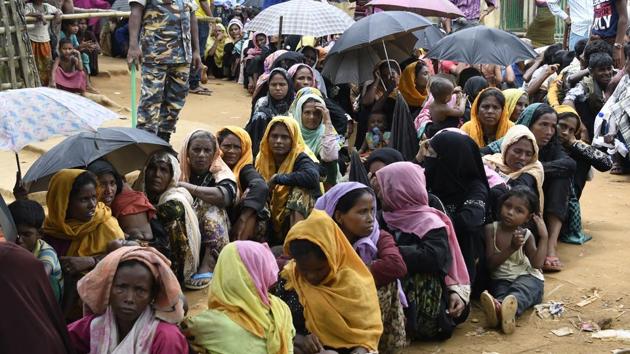India supports UN discussion on 'responsibility to protect' amid debate on Rohingyas
India has agreed for the discussion on the understanding that there won’t be any adoption of the resolution by the UNGA. New Delhi also hopes that “normative concepts at stake require careful deliberation”.
India supported the discussion in the United Nations General Assembly (UNGA) on the 'Responsibility to Protect' and the prevention of genocide, war crimes, ethnic cleansing, and crimes against humanity as the world body takes up the issue after 12 years in the backdrop of a looming crisis in South Asia over the Rohingya issue, among others.

India has agreed for the discussion on the understanding that there won’t be any adoption of the resolution by the UNGA. New Delhi also hopes that “normative concepts at stake require careful deliberation”.
As many as 113 countries, including India, voted in its favour while 21 others, including Pakistan, Iran and Cuba, opposed the idea of having a debate, with many of them challenging the definitional and political aspects of these issues.
Seventeen members of the UN abstained from the vote. In his explanation of the vote, Syed Akbaruddin, India’s permanent representative to the UN, said that the discussions on the concept required open, inclusive and transparent deliberation.
“The ‘Responsibility to Protect’ was one of the foremost of every state and, as such, India would support the inclusion of such an item on the agenda for the current session,” he said.
Akbaruddin said that India is voting in support of the recommendation of the General Committee to include it on the agenda of the 72nd session of the General Assembly with the understanding that the sponsors of the proposal aim to have a debate at the current session only.
This is for the first time in 12 years that the General Assembly voted to include the item on the formal agenda.
“They have articulated their objective as wanting to have a thematic debate and not one that addresses country-specific situations, and have also indicated that they do not seek the adoption of any resolution,” said Akbaruddin.
“This is in line with our understanding that the gravity of the normative concepts at stake requires careful deliberation rather than pre-emptive decision-making,” he said.
Get Current Updates on India News, Lok Sabha election 2024 live, Election 2024 along with Latest News and Top Headlines from India and around the world.




